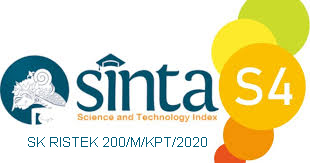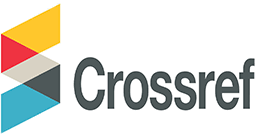Development of Paramadina Roomhub Application As Room Booking System Using Waterfall Method
Abstract
The manual room booking process at Paramadina University faces several challenges, including inefficiencies, human errors, and communication breakdowns between applicants and facility managers. These issues often result in room booking conflicts and delays, hindering effective facility usage. The need for a more streamlined, user-friendly solution led to the development of the Roomhub Paramadina application, a web-based system designed to facilitate room bookings within the university. The objective of this research is to design and implement a digital room booking system that simplifies the current manual process. The application was developed using the Software Development Life Cycle (SDLC) with the Waterfall framework. This approach ensures structured and systematic development, enabling the team to follow sequential stages from requirements gathering to testing. The Roomhub application allows users to view available rooms, submit booking requests, and receive confirmations directly via an online platform. The system integrates with existing university infrastructure and ensures real-time room availability, reducing errors such as double bookings. Black-box testing was employed to verify the application’s functionality, and the results confirmed that the system meets user needs while significantly improving booking efficiency. By automating room bookings and enhancing communication between the parties involved, this research offers a practical solution that improves operational efficiency, reduces paperwork, and minimizes scheduling conflicts, thereby benefiting the entire academic community at Paramadina University.
Keywords
Full Text:
PDFReferences
Universitas Paramadina, “Tentang Universitas Paramadina.” Accessed: Oct. 24, 2024. [Online]. Available: https://paramadina.ac.id/tentang-universitas-paramadina/
Universitas Paramadina, “Universitas Paramadina Kampus Cipayung.” Accessed: Oct. 24, 2024. [Online]. Available: https://paramadina.ac.id/kampus-cipayung/
H. Singh and R. R. Shah, “BOOKiiIT - Designing a Venue Booking System (Technical Demo),” in 2020 IEEE Sixth International Conference on Multimedia Big Data (BigMM), IEEE, Sep. 2020, pp. 287–291. doi: 10.1109/BigMM50055.2020.00050.
Sabar Rudiarto, Saruni Dwiasnati, and Agung Susilo Yuda Irawan, “Design and build expert system applications using forward chaining methods to manage web-based space management,” Global Journal of Engineering and Technology Advances, vol. 10, no. 2, pp. 009–017, Feb. 2022, doi: 10.30574/gjeta.2022.10.2.0115.
F. A. Pratama, S. P. D. Kristiana, and C. M. Lukito, “The Implementation of SST as the System of Room Reservation for Students’ Organization at Atma Jaya BSD Campus,” SISFORMA, vol. 8, no. 2, pp. 44–50, Jan. 2022, doi: 10.24167/sisforma.v8i2.3434.
T. Bai, Y. Tian, and W. Li, “Research on Shared Information Management in University College Reference Room,” 2018, pp. 361–371. doi: 10.1007/978-3-319-93719-9_49.
K. Wiguna and D. Mahdiana, “Analysis of Information Systems Development Methods: A Literature Review,” INOVTEK Polbeng - Seri Informatika, vol. 8, no. 2, p. 472, Nov. 2023, doi: 10.35314/isi.v8i2.3753.
S. Pargaonkar, “A Comprehensive Research Analysis of Software Development Life Cycle (SDLC) Agile & Waterfall Model Advantages, Disadvantages, and Application Suitability in Software Quality Engineering,” International Journal of Scientific and Research Publications, vol. 13, no. 8, pp. 120–124, Aug. 2023, doi: 10.29322/IJSRP.13.08.2023.p14015.
M. I. H. -, “Software Development Life Cycle (SDLC) Methodologies for Information Systems Project Management,” International Journal For Multidisciplinary Research, vol. 5, no. 5, Sep. 2023, doi: 10.36948/ijfmr.2023.v05i05.6223.
A. Gupta, “Comparative Study of Different SDLC Models,” Int J Res Appl Sci Eng Technol, vol. 9, no. 11, pp. 73–80, Nov. 2021, doi: 10.22214/ijraset.2021.38736.
N. Rachma and I. Muhlas, “Comparison Of Waterfall And Prototyping Models In Research And Development (R&D) Methods For Android-Based Learning Application Design,” Jurnal Inovatif : Inovasi Teknologi Informasi dan Informatika, vol. 5, no. 1, p. 36, Aug. 2022, doi: 10.32832/inova-tif.v5i1.7927.
R. S. Ghumatkar and A. Date, “Software Development Life Cycle (SDLC),” Int J Res Appl Sci Eng Technol, vol. 11, no. 11, pp. 1162–1165, Nov. 2023, doi: 10.22214/ijraset.2023.56554.
H. J. Christanto and Y. A. Singgalen, “Analysis and Design of Student Guidance Information System through Software Development Life Cycle (SDLC) dan Waterfall Model,” Journal of Information Systems and Informatics, vol. 5, no. 1, pp. 259–270, Mar. 2023, doi: 10.51519/journalisi.v5i1.443.
Ștefan-D. GEORGESCU and I.-E. ANASTASIU, “THE INTERVIEW AS A QUALITATIVE RESEARCH INSTRUMENT,” Feb. 2022. doi: 10.24818/IMC/2021/05.14.
D. Bork, D. Karagiannis, and B. Pittl, “A survey of modeling language specification techniques,” Inf Syst, vol. 87, p. 101425, Jan. 2020, doi: 10.1016/j.is.2019.101425.
D. Bork, D. Karagiannis, and B. Pittl, “A survey of modeling language specification techniques,” Inf Syst, vol. 87, p. 101425, Jan. 2020, doi: 10.1016/j.is.2019.101425.
Inc. Vercel, “Introduction | Next.js.” Accessed: Oct. 24, 2024. [Online]. Available: https://nextjs.org/docs
OpenJS Foundation, “Express,” 2024, Accessed: Oct. 24, 2024. [Online]. Available: https://expressjs.com/
PROF. B. V. Karlatthe, “MERN Stack Based User Authentication Technique for Evernote Application,” INTERANTIONAL JOURNAL OF SCIENTIFIC RESEARCH IN ENGINEERING AND MANAGEMENT, vol. 07, no. 11, pp. 1–11, Nov. 2023, doi: 10.55041/IJSREM27053.
OpenJS Foundation, “Introduction to Node.js.” Accessed: Oct. 24, 2024. [Online]. Available: https://nodejs.org/en/learn/getting-started/introduction-to-nodejs
Dicoding, “Tutorial Node.js: Apa itu Node.js dan dasar-dasar Node.js.” Accessed: Oct. 24, 2024. [Online]. Available: https://www.dicoding.com/blog/apa-itu-node-js/
Inc. MongoDB, “What Is MongoDB.” Accessed: Oct. 24, 2024. [Online]. Available: https://www.mongodb.com/company/what-is-mongodb
P. S. W. Ei, “Learning in horizontal scaling MongoDB data sharding on windows,” i-manager’s Journal on Software Engineering, vol. 17, no. 3, p. 1, 2023, doi: 10.26634/jse.17.3.19790.
Gilang Ryan Fernandes and Ika Mei Lina, “Boundary Value Analysis Testing Against Library Applications Using the Black Box Method as System Performance Optimization,” Jurnal E-Komtek (Elektro-Komputer-Teknik), vol. 5, no. 1, pp. 43–54, Jun. 2021, doi: 10.37339/e-komtek.v5i1.528.
D. Yulistyanti, T. Y. Akhirina, T. Afrizal, A. Paramita, and N. Farkhatin, “Testing Learning Media for English Learning Applications Using BlackBox Testing Based on Equivalence Partitions,” Scope : Journal of English Language Teaching, vol. 6, no. 2, p. 73, Apr. 2022, doi: 10.30998/scope.v6i2.12845.
D. Yulistyanti, T. Y. Akhirina, T. Afrizal, A. Paramita, and N. Farkhatin, “Testing Learning Media for English Learning Applications Using BlackBox Testing Based on Equivalence Partitions,” Scope : Journal of English Language Teaching, vol. 6, no. 2, p. 73, Apr. 2022, doi: 10.30998/scope.v6i2.12845.
G. W. Sasmito and M. A. Mutasodirin, “Black Box Testing with Equivalence Partitions Techniques in Transcrop Applications,” in 2023 6th International Conference of Computer and Informatics Engineering (IC2IE), IEEE, Sep. 2023, pp. 53–58. doi: 10.1109/IC2IE60547.2023.10331562.
Gilang Ryan Fernandes and Ika Mei Lina, “Boundary Value Analysis Testing Against Library Applications Using the Black Box Method as System Performance Optimization,” Jurnal E-Komtek (Elektro-Komputer-Teknik), vol. 5, no. 1, pp. 43–54, Jun. 2021, doi: 10.37339/e-komtek.v5i1.528.
C.-H. Tsai, S.-C. Tsai, and S.-K. Huang, “REST API Fuzzing by Coverage Level Guided Blackbox Testing,” in 2021 IEEE 21st International Conference on Software Quality, Reliability and Security (QRS), IEEE, Dec. 2021, pp. 291–300. doi: 10.1109/QRS54544.2021.00040.
DOI: https://doi.org/10.31326/jisa.v7i2.2119
Refbacks
- There are currently no refbacks.
Copyright (c) 2024 Reza Arif Maulana, Muhamad Adillah Fatih, Lintang Arbi Suto, Muhammad Darwis

This work is licensed under a Creative Commons Attribution-ShareAlike 4.0 International License.
JOURNAL IDENTITY
Journal Name: JISA (Jurnal Informatika dan Sains)
e-ISSN: 2614-8404, p-ISSN: 2776-3234
Publisher: Program Studi Teknik Informatika Universitas Trilogi
Publication Schedule: June and December
Language: English
APC: The Journal Charges Fees for Publishing
Indexing: EBSCO , DOAJ, Google Scholar, Arsip Relawan Jurnal Indonesia, Directory of Research Journals Indexing, Index Copernicus International, PKP Index, Science and Technology Index (SINTA, S4) , Garuda Index
OAI address: http://trilogi.ac.id/journal/ks/index.php/JISA/oai
Contact: jisa@trilogi.ac.id
Sponsored by: DOI – Digital Object Identifier Crossref, Universitas Trilogi
In Collaboration With: Indonesian Artificial Intelligent Ecosystem(IAIE), Relawan Jurnal Indonesia, Jurnal Teknologi dan Sistem Komputer (JTSiskom)
JISA (Jurnal Informatika dan Sains) is Published by Program Studi Teknik Informatika, Universitas Trilogi under Creative Commons Attribution-ShareAlike 4.0 International License.


















